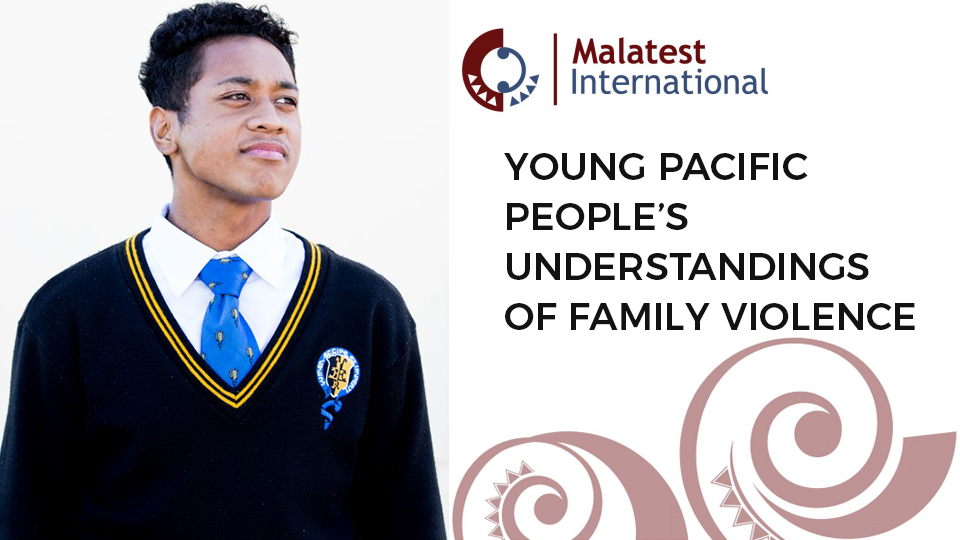Pacific Young People’s Understanding of Family Violence
In 2019 MSD commissioned Malatest International to undertake qualitative research to canvass young Pacific people’s perspectives on family relationships and family violence.

Credit: Ministry of Social Development
This research aimed to broaden our understanding about young Pacific people’s identity and worldviews; explore how these understandings influence young Pacific people’s perceptions of healthy family relationships and family violence; and build on a Pacific conceptual framework developed by Pasefika Proud to address family violence in Pacific communities in New Zealand - Nga Vaka o Kāiga Tapu.
Ten focus groups and strengths-based talanoa (conversations) were conducted with young Pacific people. 71 young Pacific people aged between 12 and 24 participated in the focus groups.
Key Findings
- Young people are proud of being Pacific. Their culture, identity and sense of belonging are tightly enmeshed. They embrace cultural values but also experience cultural clashes: many highlighted differences and value-based conflicts between Pacific and Western cultures and held conflicting views about religion and tradition.
- Those interviewed said they had different experiences from their parents regarding education and careers, parenting practices, roles and responsibilities, access to technology, social media, and youth mental health services.
- Family violence was considered to negatively impact on young people’s relationships with parents (creating negative, fearful and resentful relationships), attitudes towards violence (normalising abusive behaviour, inhibiting alternative forms of communication and expression), and health and wellbeing (despair and a sense of helplessness, and emotional and social withdrawal).
- Young Pacific people held mixed views about whether physical discipline was an acceptable form of discipline. They held ambiguous and subjective perspectives about the point at which physical discipline became abuse.
- Perceived barriers to seeking help- included victim-blaming attitudes, silence and shame, upholding the cultural value of respect, self-minimisation of issues, a desire to keep families together (despite dysfunction), and a fear of and for perpetrators (fear of consequences, dependence, and a belief that the violence was not intentional).
- Gender roles (male dominance and an abuse of power, and clashes between traditional and contemporary understandings about the role of women) and societal factors and determinants of health and wellbeing (poverty, high stress and addictive behaviours) were perceived as increasing the risk of family violence within Pacific communities.
The young people interviewed identified that effective family violence prevention could encompass:
- Collective and community responsibilities
- Shared understandings and integrated responses from service providers, families and churches
- Key family violence prevention and positive parenting messages and education that encourages and enables open conversations within families, enable parents and young people to understand and learn from each other, and promote help-seeking.
Download the report CLICK HERE
You may also be interested in Nga Vaka o Kāiga Tapu CLICK HERE
Pasefika Proud Pathways for Change 2019 - 2023
Pasefika Proud is a social change movement – ‘by Pacific for Pacific’ – to boost wellbeing for Pacific families and transform attitudes, behaviours and norms that enable violence. Our name and strapline embody our strengths-based, community-led approach.
Pasefika Proud Vision: Pacific families and communities are safe, resilient and enjoy wellbeing through social connections, healthy and happy lifestyles, cultural identity, personal security and safety, spirituality.
Pasefika Proud change strategies: mobilising pacific communities + capability development + strategic priorities.

Download – Pasefika Proud Pathways for Change 2019-2023
Pasefika Proud: Our Families, Our People, Our Responsibility